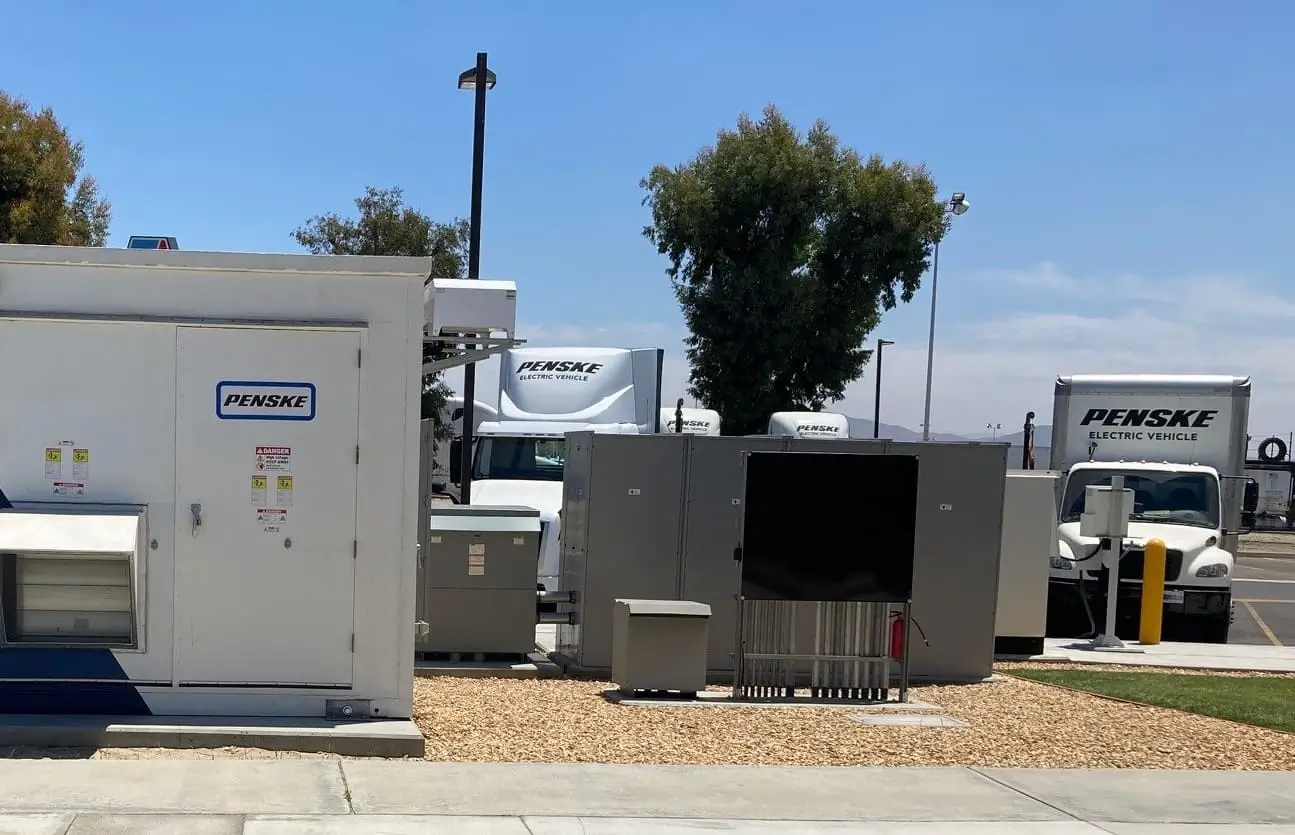
With transportation now accounting for the largest share of U.S. greenhouse gas emissions, electric vehicles (EVs) will be key to the clean energy transition. Several states and the federal government have announced funding to increase the number of EVs on the road, and California requires all new passenger cars and trucks to be emissions-free by 2035.
Penske Truck Leasing, a leading transportation logistics provider, is exploring the benefits of a battery energy storage system (BESS) at an EV fleet charging depot in California’s Inland Empire. As part of a co-creation project with Daimler, the BESS infrastructure, along with the electric vehicle supply equipment (EVSE), was funded and installed through grants with the South Coast Air Quality Management District (SCAQMD) and the ports. This pilot program was a joint effort among several partners, including Stem.

California regulations now require heavy-duty truck fleets to start transitioning to zero-emissions EVs in 2024. This has tremendous implications for companies like Penske, who must rethink logistics around fleet charging and management and develop an appropriate investment strategy. Further, the project encountered headwinds when the original software provider had difficulty optimizing the battery to deliver value.
Because software issues had hampered the project, Penske’s first priority was finding a proven software solution that could deliver superior EV charging results. And because this was Penske’s first foray into leveraging energy storage for EV fleet charging, it needed an expert partner to provide a turnkey experience. With our extensive track record, service dedication, and best-in-class Athena® software, Stem excelled across the board.
To maximize project revenues, Athena first modeled battery performance and charging behavior under a range of potential tariffs. Now Athena optimizes EV charging while providing a real-time window into system operations for Penske. Since starting the pilot, smart energy storage has driven a 40% decrease in Penske’s site peak energy consumption.
Athena also ensures the project reduces GHG emissions in accordance with California’s Self-Generation Incentive Program (SGIP). Perhaps most importantly, the project is informing Penske’s long-term fleetwide EV charging strategy.